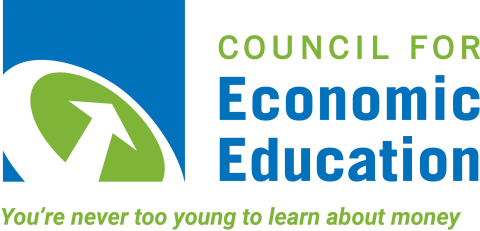October Is National Economic Education Month
October Is National Economic Education Month
Helping All Students Understand How Everyday Economic Decisions and Policies Affect their Lives, their Families and their World
NEW YORK--(BUSINESS WIRE)--Understand why COVID-era shortages in the “global supply chain” and available workforce mean family groceries may cost so much more? Why you can’t find those new track shoes or that new video game console for months? Any clue what a $28 trillion national debt means for a student’s future?
It pays to understand economics – even at a young age.
October marks the first-ever National Economic Education Month – a series of activities to focus attention on helping K-12 teachers and their students understand the importance of economics.
“Education is fundamental to leveling the playing field,” said Nan J. Morrison, president and CEO of the Council for Economic Education (CEE), which is spotlighting the premiere of Economic Education Month at its 60th national Financial Literacy and Economic Education Conference. “With gaps in financial knowledge and wealth-building running clearly along socioeconomic lines, we must reach out to all students to help them understand how both personal – micro - and national and global – macro – economics impact just about every aspect of their lives.”
“Economics is all around us,” said Mike Raymer, executive director of the Georgia Council on Economic Education, which spearheaded the new national monthly designation. “Economics teaches us that scarcity forces everyone to make choices, and our choices come with costs. Students with a clear understanding of basic economic principles will be equipped to make educated decisions.”
CEE, its state affiliates and the National Association of Economic Educators are backing the monthlong effort to help teachers, school officials and policymakers bring economic education to life, noting that preparing children for success in life involves teaching them when they are young. Yet, as noted in CEE’s most-recent biennial Survey of the States, only 23 states require a standalone high school economics class be taken.
Among the activities this month:
- Teachers can find free K-12 economics lesson plans and other classroom resources at CEE’s EconEdLink.org, take part in statewide events like the Georgia Council’s teacher video competition, and invite community and business leaders to classes to share how they consider economic choices when making decisions just as families do
- Teachers, students and those who support this mission can enjoy exploring “economics in the real world” through various online activities and social media including following the conversation on Twitter with #EconEdMonth
“We treat every month like Economic Education Month,” Morrison added, “but we are eager in this special month to help everyone celebrate and learn about the abundant resources available to assist teachers and enable students to make optimal decisions for themselves, their families and their communities throughout their lives.”
ABOUT THE COUNCIL FOR ECONOMIC EDUCATION: The Council for Economic Education’s mission is to teach K-12 students about economics and personal finance so they can make better decisions for themselves, their families and their communities. We carry out our mission by providing resources and training to K-12 educators and have done so for over 70 years. Nearly two-thirds of the tens of thousands of teachers we reach virtually and in-person are in low to moderate income schools. All resources and programs are developed by educators and delivered by our nearly 200 affiliates across the country in every state. We also advocate for more and better education in personal finance and economics, primarily through CEE’s biennial Survey of the States. Find out more at councilforeconed.org.
Contacts
MEDIA CONTACTS:
Kate Alexander kate@successioncommunications.com (201) 638-3946
Lisa Fels Davitt lisa@successioncommunications.com (973) 886-1917
